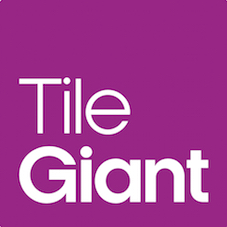UK DIY News
Worldstores aims for new view on retailing
For anyone starting a new retail business, the homes and gardens sector looks like a market best avoided. One of the hardest hit categories on the high street, there has been a string of insolvencies from the likes of Habitat, Focus DIY and TJ Hughes in recent months, and a shock profit warning from Topps Tiles last week as consumers rein in discretionary spending. However, two online entrepreneurs hope to succeed by reinventing the business model, and have secured backing from tech specialists Balderton Capital in advance of a hoped-for IPO.
“We’ve come at retail from a tech perspective,” says Joe Murray, joint founder and chief executive of Worldstores, which operates over 70 niche websites focused on product categories ranging from beds to barbecues to bookcases.
The antithesis of the traditional retail model, the starting point for the business three years ago was understanding how consumers have changed the way they shop. Noting the trend for “pre-shopping online”, Worldstores co-founder Richard Tucker believes that internet search engines have become the new shop window. If you want to buy a bed, he argues, you’re more likely to type “bed” into Google than look on a specific retailer’s website. This is why Worldstores has 70 niche sites – all with the suffix of “World” – which offer shoppers a much broader range of specific products than a high street generalist.
Whereas retailers have buying teams to determine what products to stock, Worldstores bases its decisions on search engine data, which shows exactly what brands and subcategories UK consumers are searching for.
As one would expect for an online business, Worldstores has no shops. However, it hardly carries any stock either, as its complex IT system enables it to fulfil 95 per cent of web orders direct from suppliers. This explains how it can offer 175,000 products (this compares to 25,000 in the latest Argos catalogue) and is working towards hitting one million in “the next two or three years”.
Projected turnover is £40m this year. That may be a tiny fraction of the UK’s estimated £30bn homes and gardens market, but its capital-light structure is enabling the company to grow sales at the rate of 70 per cent a year. This figure should trouble high street incumbents such as Home Retail, DFS, Carpetright and Dunelm as it shows the potential for their market to move online.
Unlike selling electrical goods online, where prices have quickly raced to the bottom, homewares has the potential to be more profitable. “There are high average order values, and as it is mostly unbranded product, there are decent margins,” Mr Murray says. “I would challenge anyone to name a brand of wardrobes.”
Regardless, retail analysts question how successfully the category could move online, believing that most people will want to touch and feel products before ordering. “Argos has been one of the biggest sellers of beds over the last 20 years, but you can’t try out products there,” argues Mr Murray. “Similarly, you can’t take a bed home from Dreams – it has to be delivered.” Worldstores boasts its delivery options are faster and more flexible than most high street retailers, and aims to offer hourly time slots and a delivery window that avoids the school run in the near future. “We’re not necessarily the cheapest on the market, but because we offer quick delivery people are prepared to pay for that convenience,” he adds.
Source : Claer Barrett – Financial Times
www.ft.com/cms/s/0/e634a48a-d175-11e0-89c0-00144feab49a.html#axzz1WLUT8Vb6
I find the news and articles they publish really useful and enjoy reading their views and commentary on the industry. It's the only source of quality, reliable information on our major customers and it's used regularly by myself and my team.








































